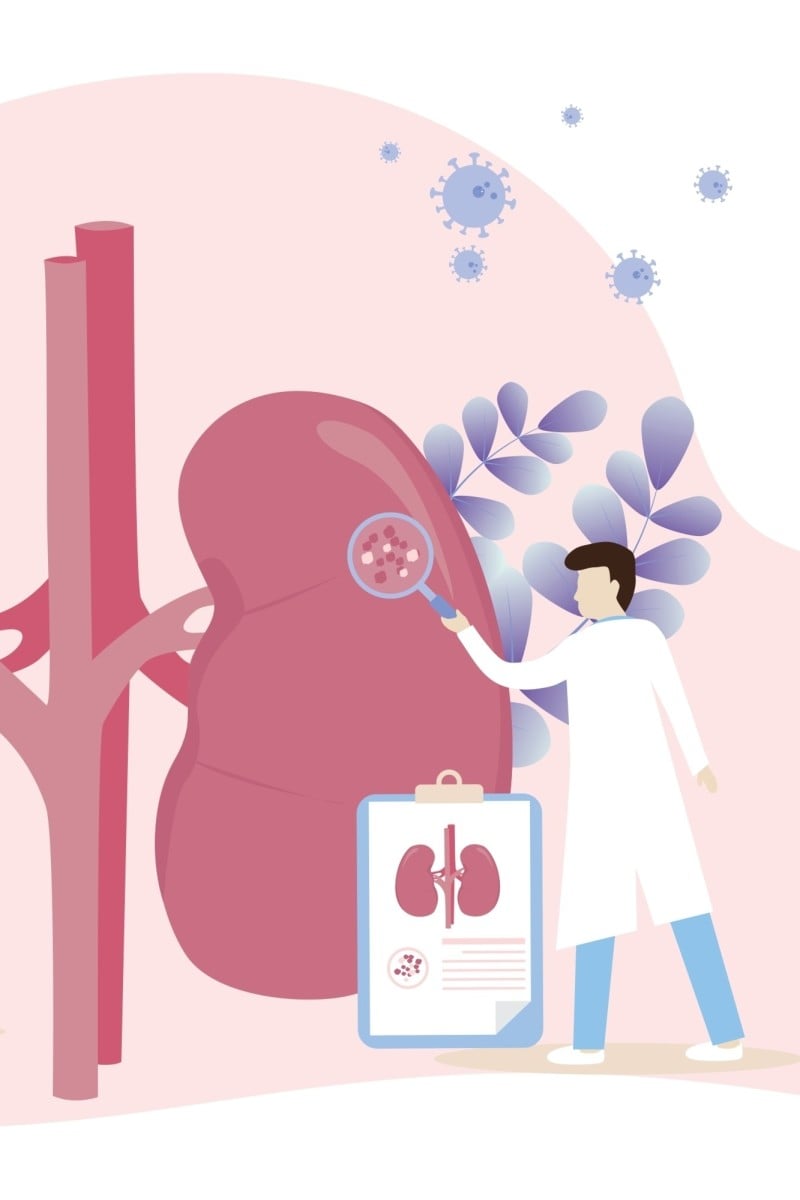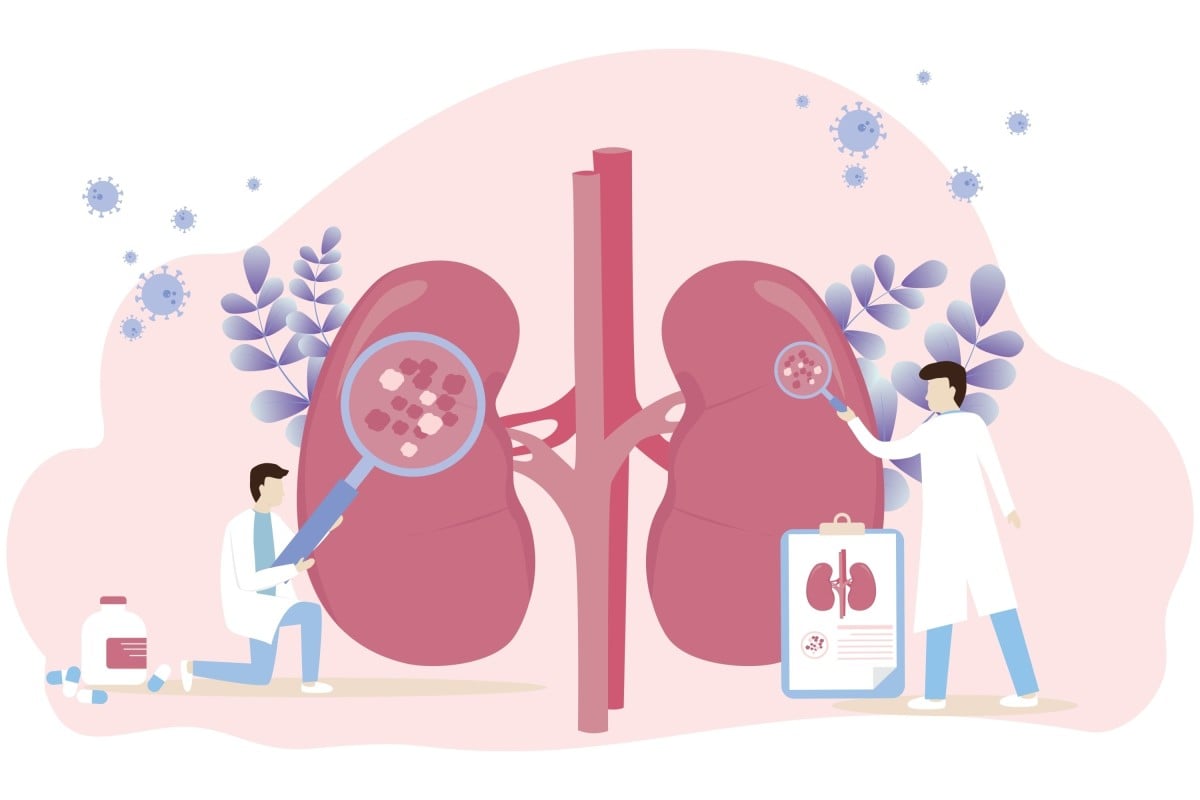
Learn why the colour of urine varies and how hydration, diet and kidney health are all connected
 Discover the vital role of kidneys in balancing blood pressure and electrolytes, with urine revealing key health insights. Photo: Shutterstock
Discover the vital role of kidneys in balancing blood pressure and electrolytes, with urine revealing key health insights. Photo: Shutterstock Go ahead, get the giggles out of the way. We’re about to take a close look at urine, and in such conversations, bathroom humour is often the by-product. But once you’re through, perhaps you can also relieve yourself of the notion that urine is simply material for third-grade punchlines – or simple at all.
Urine is the result of a fascinating and complex system, of which the kidneys are the star, that evolved to keep our internal systems in balance, said Dr David Pollock of the University of Alabama at Birmingham. “It’s basically what keeps your cells alive,” he said.
This makes understanding what is in your pee important, and that begins with understanding how it is made (see graphic).
Urine is produced in the kidneys, whose primary function is typically described as filtering blood. But the kidneys do much more than that, Pollock said.
“There’s a very close relationship between the heart and the kidneys,” he said.
The kidneys regulate the amount of sodium and water your body retains. That water equates to the volume of blood you carry, and the greater the volume, the higher the pressure will be.
That makes the kidney the primary organ in charge of blood pressure, Pollock said: “Basically, the kidney is responsible for making sure that it doesn’t get too high.”
The kidneys control blood pressure by regulating sodium. When sodium is retained, blood volume goes up. The kidneys also regulate potassium, which helps limit the effects of sodium.
Both are electrolytes, and the kidneys maintain electrolytes at “very, very precise concentrations,” said Dr Janani Rangaswami, a professor of medicine at the George Washington University School of Medicine and Health Sciences in Washington.
Those concentrations can significantly affect health, said Rangaswami, who is also chief of nephrology at the Washington VA Medical Centre. Electrolyte imbalances, such as low sodium levels, can lead to seizures. High or very low potassium could lead to heart rhythm problems.
Why pools can smell so strong (it’s mostly pee)
The kidneys also balance the blood’s acidity and filter out waste products, as well as some drugs, from the bloodstream.
The result of all this balancing and filtering is urine. It flows from the kidneys through the ureters to the bladder, where it’s stored until the next commercial break, rest area or whenever it’s your turn in the bathroom.
Depending on a person’s size, the kidneys might filter around 48 gallons of blood each day, Rangaswami said. That might yield up to a couple of quarts of urine, although it’s important not to fixate on how much urine you produce, she said.
This is because the amount varies based on how much fluid you’re drinking, the health of your kidneys and the medications you may be taking.
Tribune News Service
What does healthy pee look and smell like?
Urine gets its yellow colour from a chemical called urobilin, also known as urochrome.
But the intensity of that colour can vary depending on how much water you have been drinking.
“A lot of patients wrongly infer that if their urine looks concentrated, or if it’s dark yellow, that something is wrong,” Rangaswami said.
“That’s just a reflection of the urine being more concentrated. And usually, drinking more fluids will make it clear. So there is no reason to get concerned every time you notice a slight change in the colour.”
Average body temperature drops below 37 degrees Celsius; Harvard study reveals new normal
Certain foods, such as beets and asparagus, as well as some medications, can cause exotic but harmless changes in the colour or smell of urine, she explained. But “any blood that is visible in the urine should always prompt a medical evaluation,” Rangaswami said.
“In terms of diet, what would generally be considered a heart-healthy diet is also a kidney-healthy diet,” she added.
This would include eating less sodium and more fresh fruits, vegetables and whole grains while reducing consumption of heavily processed foods.
Overall, Rangaswami said, a conversation about urine is a good way to put the importance of kidney health in focus, adding, “Anything we can do to protect and keep the kidneys healthy is going to be good for their heart as well.”